Automatic Car Driving Tutorials for Learner Drivers
This is your complete guide for learning to drive an automatic car. Complete tutorials from qualified driving instructors from start, right up to test standard. Best results are obtained when completing the following tutorials in sequential order.
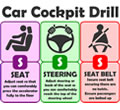
Automatic Car Cockpit Drill
Complete guide to the cockpit drill procedure for automatic cars. Tutorial as taught by professionally qualified driving instructors, this cockpit drill will be your very first driving lesson.
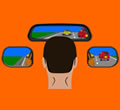
Observation and Setting the Mirrors
As a learner driver, passing the driving test and staying safe is paramount and this is achieved partly with effective observation. These tutorials cover all aspects of your car’s mirrors and effective observation.
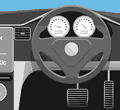
Hand, Foot and Auxiliary Car Controls
After learning the cockpit drill and setting the mirrors, you’ll now need to move onto learning the foot controls, hand controls and auxiliary controls before driving the car.
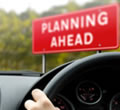
Driving and Planning Ahead
Planning ahead is a crucial skill that’s essential for learning to drive. This guide explains the key skills required for learning to drive; concentration, observation, awareness, anticipation and planning.
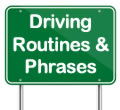
Driving Routines and Phrases
To help with the many challenges of learning to drive, instructors use driving routines. These routines should be taught from and early stage and used throughout the process of learning to drive. As you continuously repeat the routines, you’ll be doing them without thinking about it.
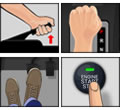
Moving Off in an Automatic Car
We now move on to the first practical driving lesson of moving off in an automatic car. This tutorial will also be suitable for those learning to drive in an electric car due to those also being automatic. This tutorial is the first part of ‘moving off and stopping’ and comes complete with diagrams to follow just as a driving instructor teaches.
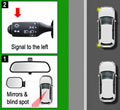
Stopping on the Left in an Automatic Car
Once you have learnt how to move off, you will of course need to learn how to safely stop the car. During the driving test, the examiner will ask that you stop on the left many times.
This stopping on the left in an automatic car tutorial explains everything you need to know for safely stopping on the left alongside the kerb to test standard. Tutorial includes proper safety observations, appropriate speed and correct use of car controls.
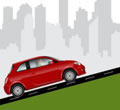
Hill Starts in an Automatic Car
During a driving test, it’s likely that the examiner will ask you to carry out a hill start. Though hill starts are much easier in an automatic car compared to a manual, it’s still important that you get it right, as rolling backwards can easily fail a driving test. This tutorial explains how to do a hill start in an automatic car without fear of rolling back.
Downhill Starts:
During the driving test, you may also need to demonstrate a downhill start. If it’s a steep and long slope, you’ll need to learn how to keep the car slow, without overheating the brakes. For further information, see downhill starts in an automatic car.
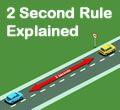
2 Second Rule
After perfecting moving off and stopping, you’ll then begin driving in traffic. For safety reasons, you’ll need to know a safe distance for following vehicles ahead.
An easy method for assessing safe following distances is to use the 2 second rule. This tutorial explains what the 2 second rule is, how to do it and why it’s important.
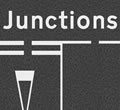
Learning to Drive at Junctions
There are many types of road junctions and learning to drive will see you negotiating almost all of them. The following junctions tutorials offer in depth guidance from qualified driving instructors for the modern driving test, teaching all types of road junctions for those learning in an automatic car.
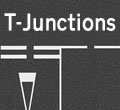
T-Junctions
T-junctions represent one of the most common traffic systems that you’ll encounter whilst learning to drive. Every year, T-junctions are also the number one reason for driving test fails. The T-junction tutorials will help you to understand T-junctions and how to properly approach them at test standard.
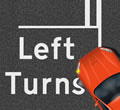
Left Turns
We now move onto left turns. Instead of emerging from junctions (T-junctions), we now enter a junction via a left turn from major to minor road. The following tutorials will enable you to make left turns in an automatic car to test standard, using the correct procedures as taught by driving instructors.
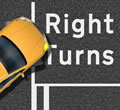
Right Turns
Once you’ve had a try at making left turns, we then move onto right turns. Right turns are a little more challenging than left turns because you need to cross the lane of approaching traffic. Read these right turn tutorials to learn how to correctly turn right from a major to minor using up to date test standard guidance.